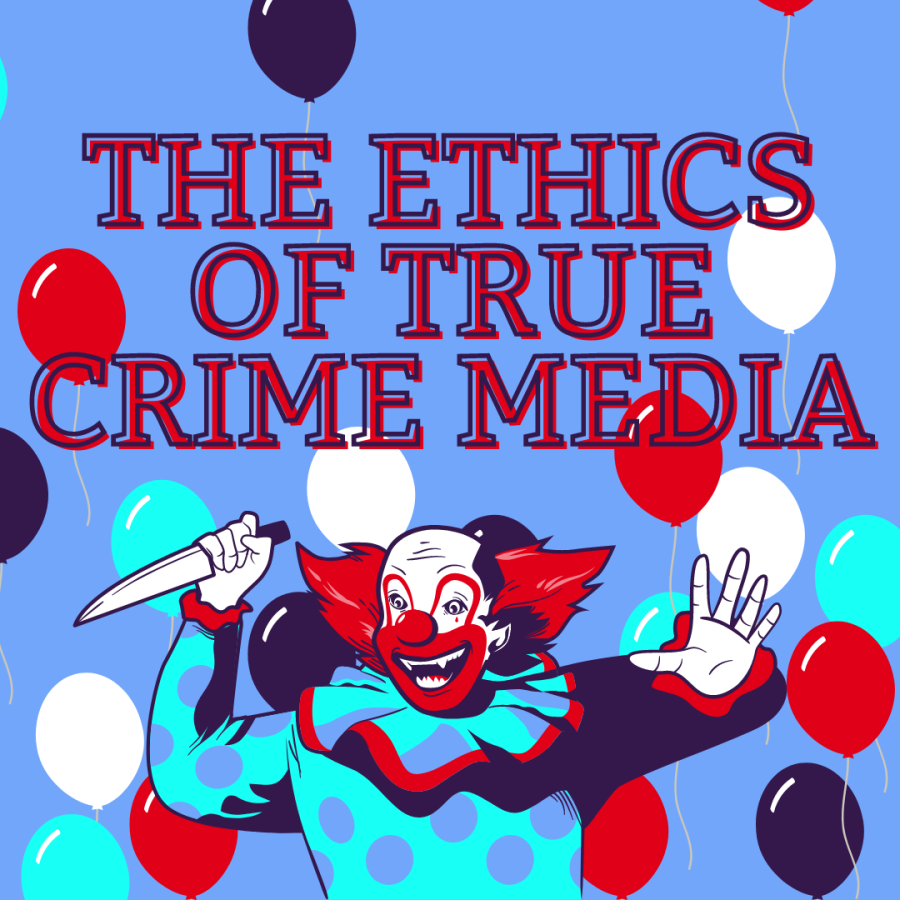The Ethics of True Crime Media
Is the true crime genre harmful to those affected by the crimes?
True crime has become an increasingly popular genre of media in recent years. The names Ted Bundy, Jeffrey Dahmer, and John Wayne Gacy have become infamous in American culture and media. The public is infatuated with the psychology behind these people and their crimes, causing thousands of documentaries, TV series, books, movies, and podcasts to be created to recount the lives and crimes of these serial killers. Very often, this content tends to glorify these criminals, which can lead people to romanticize, sympathize with and even idolize serial killers.
On Sept. 21, the “Dahmer – Monster: The Jeffrey Dahmer Story” was released on Netflix, where it quickly became popular. In its first 28 days after the release, the series received 824.2 million hours of viewing time (CNET). Starring Evan Peters, the series graphically depicts many of Dahmer’s murders, as well as the killer’s childhood and early years. The show has been deemed controversial for many reasons, the main being that the families of the victims were not notified that the series was going to be produced.
Eric Perry, cousin of Dahmer’s victim Errol Lindsey wrote on Twitter, “To answer the main question, no, they don’t notify families when they do this. It’s all public record, so they don’t have to notify (or pay!) anyone. My family found out when everyone else did.” Perry also wrote, “So when they say they’re doing this ‘with respect to the victims’ or ‘honoring the dignity of the families’, no one contacts them. My cousins wake up every few months at this point with a bunch of calls and messages and they know there’s another Dahmer show. It’s cruel.”
Following the release of the series, some social media users have expressed sympathy and admiration for Dahmer.
Twitter user @brandon_michele stated in a since-deleted tweet, “I think the serial killer I have the most sympathy for is Jeffrey Dahmer. He was chronically lonely and killed people because he could never get anyone to stay with him.”
A majority of social media users have expressed disgust for Dahmer’s supporters and sympathizers.
Twitter user @hate2feel_ stated in a tweet, “How people can come back from watching the dahmer series with SYMPATHY for him is insane to me. especially when it was largely focused on the victims and the lives he ruined. if you’re not even more repulsed with him after finishing it then there’s something rlly wrong with you.”
Controversies over shows and films similar to the Dahmer series have raised questions over the ethics of true crime media.
“Determining what makes a work of true crime ‘ethical’ is a sticky question in and of itself,” states Hazel Wright of Portland State University in “Ethics and True Crime: Setting a Standard for the Genre.”
One main issue that many have with true crime media is that crimes are recounted in a way that often lacks respect for victims and their families.
“Because it often depicts violence, true crime can be emotionally and psychologically triggering,” says Wright. “The nuance lies in the concept of humanity—is the writer, both in their research and writing, treating victims as individuals with experiences and personalities and lives that exist outside of the crime that was committed against them.”
There are also benefits from the production of true crime content. Both legally and psychologically, victims can end up benefiting from their stories being told.
“There are cases where true crime research has had a legally corrective influence,” says Wright. “The genre can [also] offer retribution for victims who were unfairly portrayed in the initial media coverage of the time later on.”
It’s up to producers and audiences to create and consume true crime content carefully, with empathy and respect for victims and their families.

Kaelyn is a senior at Liberty, and this is her third year on the Live Wire staff. At Liberty, she participates in NHS, garden club, SEA club, and softball....

Addison is a senior at Liberty this year, and her third and final year on the Liberty Live Wire staff. She enjoys reading, writing, crafting jewelry, being...








